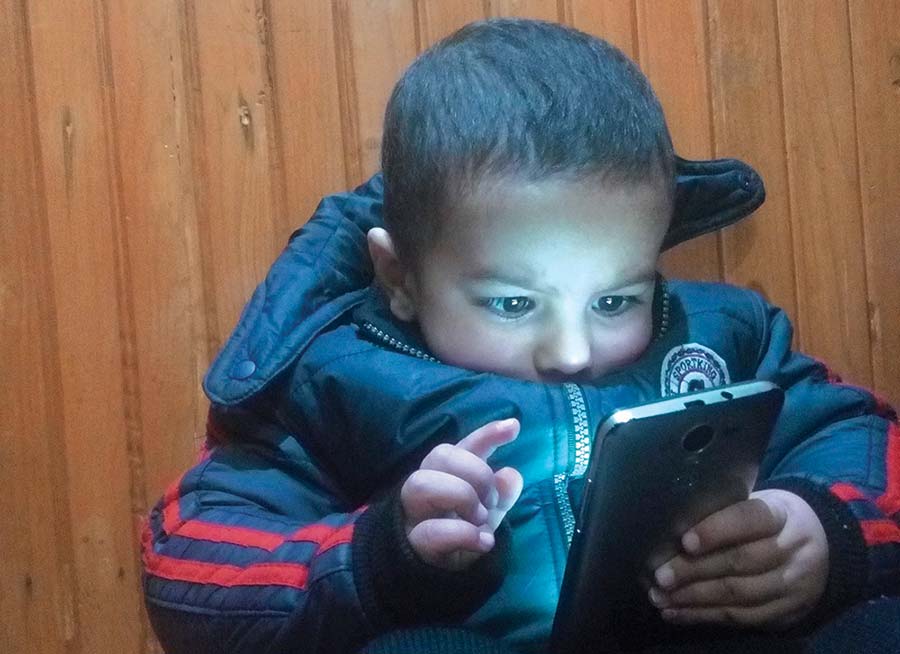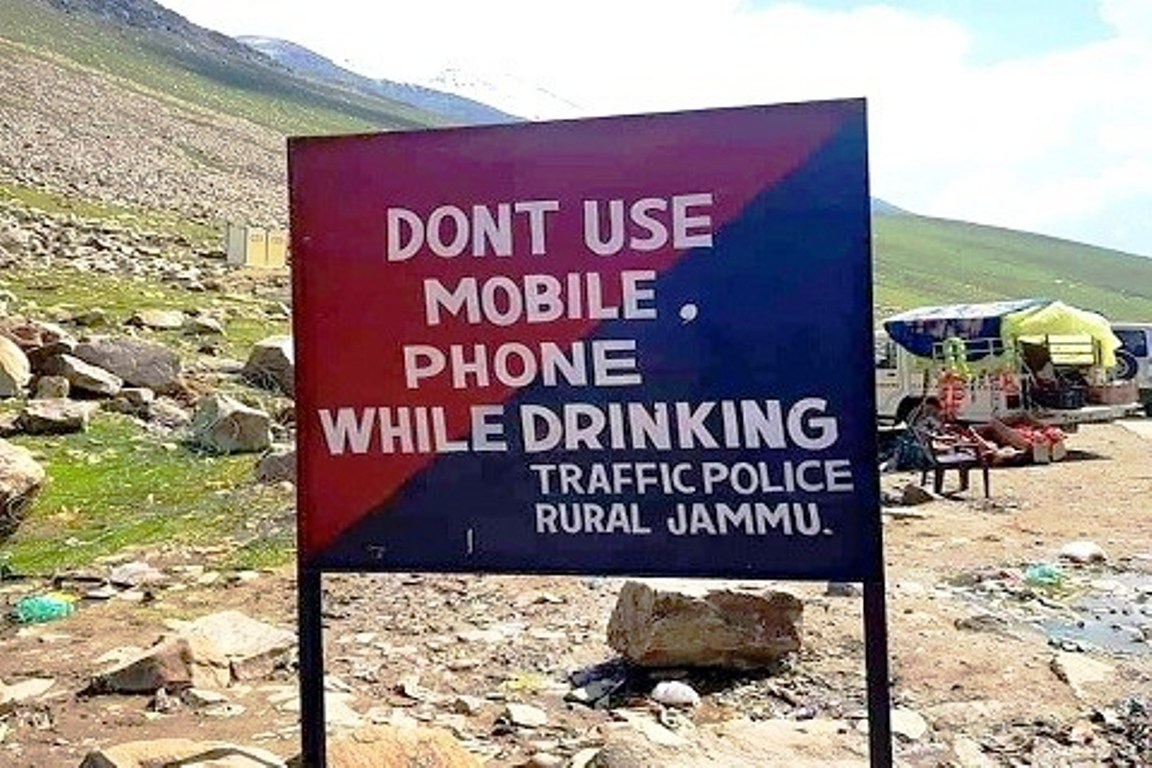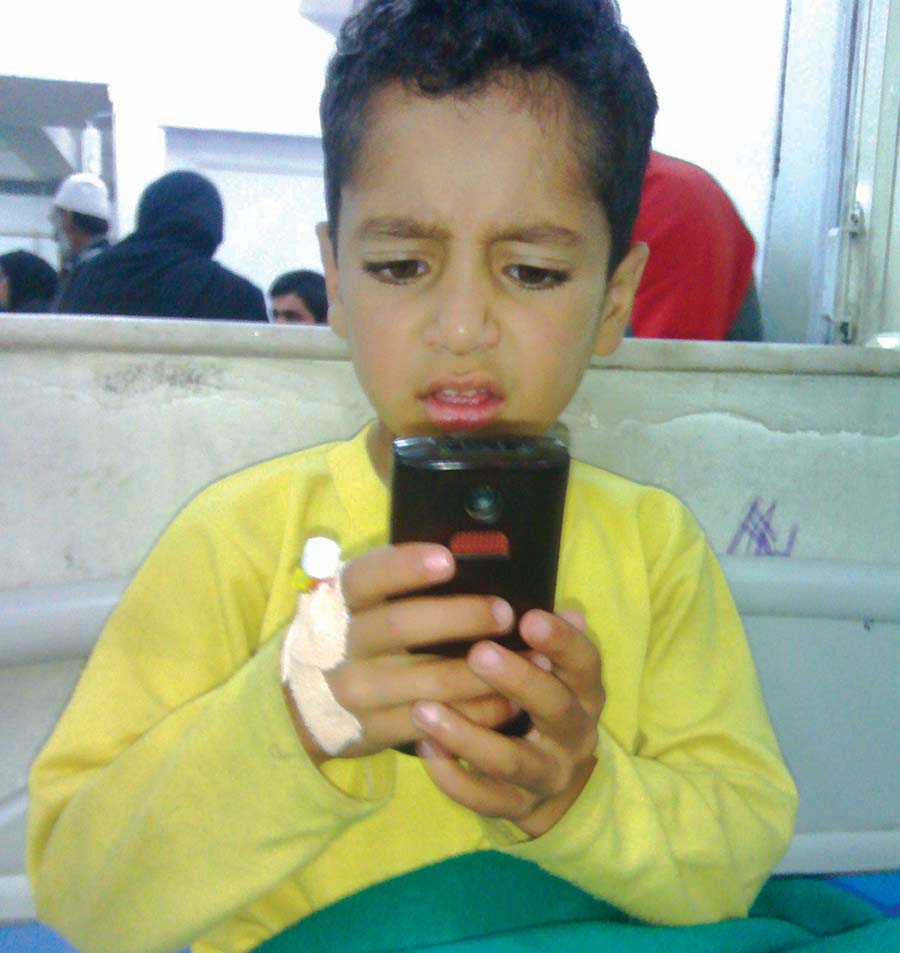With the internet accessible like water and social media sucking the new generation into it, there are various abnormalities that are emerging in the new generation. Aiman Fayaz details a new psychological condition called FOMO that has triggered a new load to the psychiatrists and counsellors in Kashmir

With the internet as accessible as breakfast, youngsters across Kashmir are facing anxiety tremors. Information overload has taken an enormous toll on the mental health of the youth and has given rise to a new psychological condition, the Fear of Missing Out, referred to as known as FOMO by the Whatsapp generation.
The term describes an increased and pervasive anxiety or apprehension of missing out on social events or experiences that others are perceived to be having. This can mean checking up on what others are doing constantly, or compulsively reaching out to maintain connection.
The twenty-first century has dictated its own regime on people and the new generation is more susceptible to getting the hit first. The new information order is perceived to make people fit into the buzz of social media. For most people, social media is as essential as drinking a glass of water. But the irony is water helps people to quench their thirst, unlike social media which has made them miserable and has filled their lives with unhealthy competition, insecurities, and self-doubt.
Within a few years of the overuse of social media, a new regime has emerged. People love to display ostentatiously the good and happy side of their lives on social media and at the same time, the ones following feel a sense of enviousness. The never-ending desire to fit into the competition by hook or by crook without keeping in check the mental status has given rise to myriads of psychological disorders.
Teens Impacted
FOMO is mostly seen in teens and young adults who ought to have their mobile phones with them every time. It has become like a body part that has to be attached to their pockets or hands because they do not want to miss out on anything on social media, among their classmates, peer group, cousins, relatives and friends.

Beep, buzz, ding, or any kind of sound coming out from mobile phones is very normal. It is like a human being calling a person and demanding attention. If individuals skip checking or cannot respond to the notification, they feel a strong cramp inside their stomachs which is anxiety and likewise, FOMO kicks in. Anxiousness is certainly part and parcel of the FOMO phenomenon.
Cognitive conducts connected to FOMO include continuous refreshing of social media accounts and notifications, and heightening anxiety as an individual awaits the reward of a message or an update.
A study on social media use by the University of Glasgow in Scotland has revealed that the influence of social networks can have devastating effects on the psychological well-being of users. The study examined the mental health consequences of social media use in 467 high-school-aged students. It reported that teenagers significantly feel societal pressure to constantly be available and that constant incoming alerts contribute to FOMO. Moreover, the study found that FOMO in the group of teens led to lower self-esteem, trouble with sleep, and anxiety.
Little Victims
For Muskan, a student at Women’s College Srinagar, the introduction to the term FOMO was not pristine. “FOMO, I think is the sense that there is more to life that you are missing out on. It is not always something specific. It is more like a feeling that others are leading a more meaningful life than you are,” Muskan said. “Even if you get certain things that others have, you do not stop feeling this way since this is something one needs to fix internally.”
The young 20-year-old feels constant pressure in keeping pace with the outgrowing world, and sometimes she feels the need to talk about it to someone. ”I sometimes talk to my friends about it and they can relate to it. One feels the need to constantly be doing something and in the process, we risk losing touch with our authentic self if we do not work on it internally,” she added.
For a very long time, mental conditions like FOMO were contemplated to be absurd. But now young people talk openly about it and some of them have already sought medical help.

Iram is a philosophy student. She is struggling with FOMO and has been on persistent medication as it was getting very difficult for her to cope with the growing anxiety.
“We think of it as regular anxiety which it is not. Since we in Kashmir are very new to the growing trend of social media so, we are unaware of the potential threats that it can cause us,” Iram said. “This condition needs to be treated at root levels using therapy and counselling instead of popping pills to treat anxiety and depression, which further increase the levels of anxiety and stress.”
For Iram, FOMO is nothing to be ashamed of. She believes one should be brave enough to talk about it candidly with friends and family as it is something a person cannot diagnose on his own. One can only figure it out while sharing it with someone who is going through the same.
An Emerging Crisis
Nowadays, youngsters can be seen hunting every social media fad because they do not want to miss out on anything cool. “I wish that I could be like the cool kids,” is the new notion teens are flaunting around.
Generation Z is trying its level best to fit in the competition even if the pressure is tearing them apart. The young generation has everything in their palm through which they manage to exaggerate their online life, which is why it is much easier for others to feel envious. Spending too much money to look lavish only to get some likes on their social media handles explains how much control social media has over the lives of the younger generation.
Hazik, an eighteen-year-old, currently preparing for his JEE examination revealed how he was not able to sleep properly for two days after uploading his Vlog on Youtube.
“I saw everyone around me uploading Vlogs on Youtube. So, I asked my parents for a new phone, which they could not afford. I restrained myself from going to tuition because I did not want to feel embarrassed in front of my friends,” Hazik said. “So after a great hassle, my father got me a second-hand phone and I started to make vlogs. But to my surprise, I did not get many likes and people made fun of me. It was heartbreaking.”
Young minds get easily influenced by the surrounding environment. It has become essential for them to participate in every activity whether they like it or not. The arm-twisting pressure has been implanted into their minds that they have to indulge themselves in something otherwise they feel a certain uneasiness and consistent restlessness if they fail to follow what they see.

Professional Feedback
Asma Nasir, a counsellor at Government Medical College Baramulla has experienced many such cases. “People do not want to miss out on anything,” Asma said. “As soon as they wake up in the morning, the first thing they do is look out for their devices because they do not want to feel abandoned by in the digital world.”
Unfortunately, Kashmir faced subsequent lockdowns for three consecutive years in the recent past, which has concocted a massive void in the behaviour of youth. Communication blockade for almost a year and not being able to hunt any information about the outside world gave rise to angry outbursts in youngsters.
“Perseverance levels have dropped at alarming rates among growing teens. They feel irritated when asked to shut their phones. The first thing I ask a patient is about their screen time. The average screen time of an individual goes between eight to twelve hours a day,” Asma said.
Segregated In Families
Parents play a pivotal role in the life of their children. But unfortunately, since both parents and children are unable to spend time together, youngsters have a higher chance of becoming stubborn and aggressive. This is when the children seek refuge in their smartphones instead of embracing their parents.
“Before reaching out to a psychiatrist or a counsellor, parents should take a step forward in mending the gap that they have initially created due to their busy schedule,” suggests Asma.

Younger people are considerably more at risk due to the increased amount of time spent online coupled with a heightened sensitivity to and need for social approval and belongingness.
Dr Yaqeen Sikandar, a Kashmir-based Psychotherapist and Research Scholar in Clinical Psychology at Ibn Haldun University, Istanbul, Türkiye defines Fomo as a mental condition rather than a disorder that young people battle every day. He has suggested some ways which can help in managing the fear of missing out.
“Steps can be taken to manage it like setting healthy boundaries and within those boundaries there is the idea of self-care, practising mindfulness, being present in the moment, and not comparing yourself with others. These lifestyle changes can help in breaking this vicious cycle of FOMO,” Yaqeen said.
It is important to understand that everyone in this world is constructed differently and everything cannot be managed at once. There are different challenges and goals in life and that is what makes people different from each other.
“Everyone has their journey and every journey is unique. People may seem very happy on social media but in reality, they might not be. The more accepting you are of yourself, the more you’ll be at peace with yourself and the world.”
(Some of the names in the report have been changed to protect identities)
from Kashmir Life https://ift.tt/5IKPoAM
via IFTTThttps://kashmirlife.net
No comments:
Post a Comment